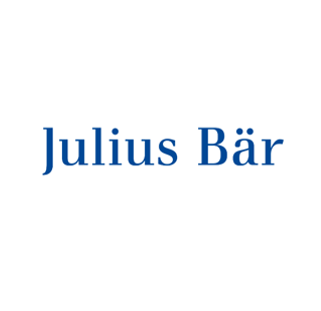Financial Results
Julius Baer's AuM Declines On Markets; Updates On Russia Exposure

The bank has a small amount of credit exposure to clients affected by sanctions on specific Russians but said that its market risk exposure to the country was insignificant and tightly controlled. More broadly, its said that AuM was affected by the fall in global markets during 2022.
Julius Baer’s assets under management in 2022 fell 12 per cent
year-on-year to SFr424 billion ($466.6 billion) mostly because of
falls to global bond and equity markets, as well as by an adverse
foreign exchange impact.
The Zurich-listed firm also spelled out its Russian exposures and
reiterated measures taken to remove risks since Moscow’s invasion
of Ukraine last February.
Julius Baer said
it booked net new money of SFr10 billion in the second half of
the year which more than offset clients taking out a net SFr1
billion in the first half of 2022 to cut credit leverage.
The full-year net new money inflow result of SFr9 billion figure
translated into a 2 per cent growth rate, relative to AuM at the
end of 2021, while the annualised growth rate for the second half
relative to AuM at the end of June was 5 per cent. Strikingly,
clients put almost SFr6 billion of net inflows into the firm in
the last two months of 2022.
By the end of 2022, SFr2.2 billion of AuM had been reclassified
to assets under custody, mainly due to asset freezes and
restricted client relationships because of the Russian invasion
of Ukraine.
“We are closing the 2020-2022 strategic cycle with the
second-best result ever. Across the period we have fundamentally
transformed our business, mastered various challenges in the
operating environment, and achieved all the financial targets we
had set ourselves three years ago,” Philipp Rickenbacher, chief
executive, said.
“We have accomplished the shift to sustainable profit growth
across market cycles, sharpened the value proposition for our
targeted high net worth and ultra-high net worth clients, and
accelerated the modernisation of Julius Baer,” he said.
Clients domiciled in Europe and the Middle East contributed
“meaningfully” to the net new money result, with particularly
strong inflows from clients domiciled in key markets Germany, the
UK and Ireland, and the Iberian Peninsula, as well as Qatar,
where Julius Baer opened its third Middle East advisory office
towards the end of the year, the bank said.
Net new money inflows from clients domiciled in Asia turned
positive in the second half of the year, partly offsetting the
net outflows registered in the first half, when a number of large
clients reacted to the environment of increased uncertainty by
de-risking their investment portfolios and reducing leverage. Net
new money from clients domiciled in Latin America was slightly
negative despite strong inflows from Mexican clients.
Corporate divestments
Julius Baer said the AuM impact from corporate divestments
amounted to SFr7 billion, primarily the result of the completion
of the sale of Wergen & Partner Wealth Management announced last
January, and Fransad Gestion SA (Fransad), announced in June
2022, and the “deconsolidation” of NSC Asesores, de CV, Asesor en
Inversiones Independiente (NSC), following the cut of Julius
Baer’s participation from 70 per cent to 19.9 per cent, announced
in February 2022.
Including assets under custody of SFr67 billion (a drop of 16 per
cent), total client assets declined by 13 per cent to SFr491
billion.
No love for Russia
The bank said that since Russia’s invasion of Ukraine in February 2022, it has “applied all relevant national and international sanctions and has not onboarded new clients with Russian residence.” Julius Baer said it has credit exposure to a “single-digit number of clients subject to these sanctions.”
The exposure is in the form of mortgage loans at conservative lending values against residential properties in prime locations in Western Europe, as well as a marginal Lombard credit exposure fully covered by pledged liquid assets collateral.
To date, Julius Baer has not recorded any credit losses directly related to the Russia/Ukraine conflict, it said.
The bank said its market risk exposure to Russia is “insignificant and tightly managed”; it has shut its advisory subsidiary in Moscow.
At the end of 2022, approximately 0.7 per cent of Julius Baer’s
AuM was related to Russian persons neither entitled to residency
in the European Economic Area nor in Switzerland.
Under sanctions imposed by the European Union and Switzerland,
the acceptance of deposits of more than €100,000 ($109,624) from
such clients is prohibited.
Income
Operating income declined marginally, by SFr5 million, to SFr3.53
billion. Net interest income and net income from financial
instruments increased on the back of higher interest rates. This
increase essentially compensated for the combined impact of a
decline in net commission and fee income (following the
market-driven fall in AuM and more muted client activity), a
decrease in other ordinary results, and a slight uptick in net
credit losses on financial assets, the bank said.
Net commission and fee income shrank by 15 per cent to SFr1.962
billion. Recurring income fell, mainly through a 6 per cent
decline in advisory and management fees to SFr1.6 billion, in
line with the reduction in monthly average AuM.
Operating costs on an IFRS basis were SFr2.77 billion, rising 7 per cent. They include a one-off impact of SFr112 million from two previously disclosed items: the SFr55 million charge under provisions and losses (in general expenses) from the settlement of a legacy litigation case related to a claim by the liquidator of a Lithuanian corporation, as well as the further impairment of M&A-related goodwill and amortisable customer relationships connected to the group’s investment in Kairos Investment Management. The Kairos position led to a SFr57 million combined amortisation and impairment charge.